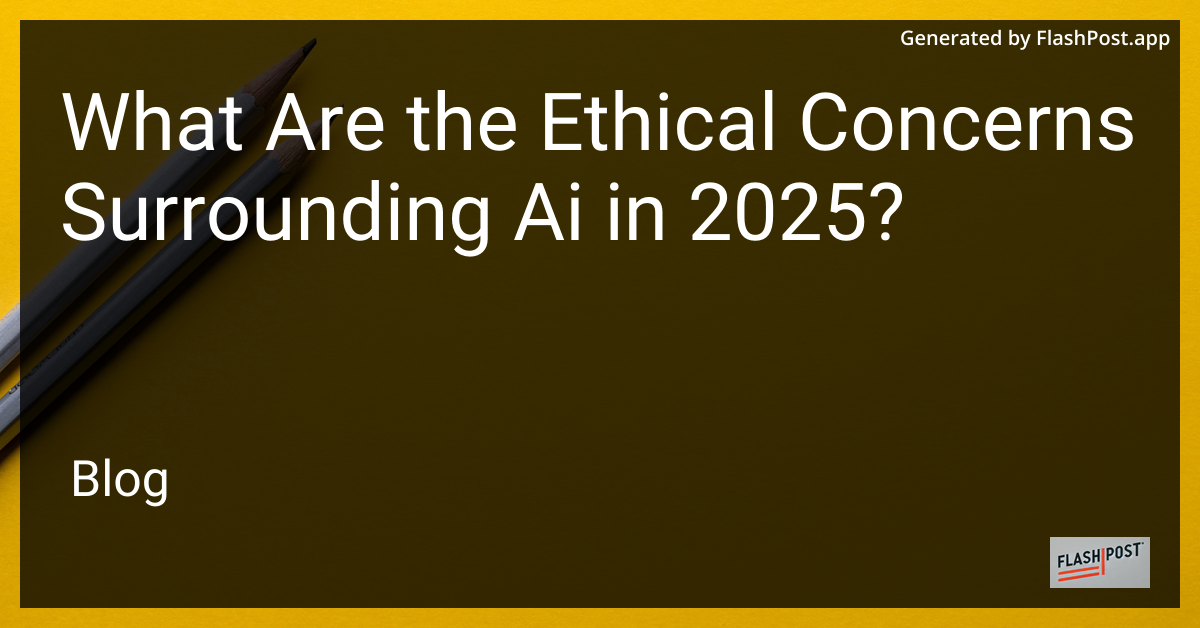
What Are the Ethical Concerns Surrounding AI in 2025?
As we move further into the digital age, artificial intelligence continues to evolve at an unprecedented pace. By 2025, AI technology is expected to be integrated deeply into various sectors, ranging from healthcare to artificial intelligence robotics. While these advancements promise substantial benefits, they also bring a host of ethical concerns that need to be addressed.
Privacy and Surveillance
One of the most pressing ethical issues is privacy. AI systems are increasingly capable of collecting, analyzing, and making inferences from vast amounts of personal data. This capability raises significant concerns about surveillance and the potential for misuse by governments and corporations. Ensuring that individuals' privacy rights are protected will be a critical challenge.
Bias and Discrimination
Despite the sophisticated algorithms used in AI, bias remains a significant issue. AI systems trained on biased data can perpetuate and even amplify existing stereotypes and discrimination. The potential for biased decision-making in areas such as hiring, criminal justice, and finance highlights the need for transparency and accountability in AI development.
Autonomy and Control
As AI becomes more autonomous, questions about control and accountability arise. Who is responsible if an autonomous system causes harm? How do we ensure that these systems align with human values and do not act against our best interests? These are critical debates that need to occur as AI gains more decision-making power.
Impact on Employment
The potential for AI to disrupt labor markets is another significant concern. Automation could lead to job displacement across numerous industries, raising ethical questions about the responsibility of businesses and governments to retrain workers and ensure equitable distribution of the benefits of AI. Exploring artificial intelligence strategies to mitigate these impacts will be essential.
Ensuring Responsible Innovation
To address these and other ethical concerns, it is vital to foster a culture of responsible innovation. This includes developing regulations and guidelines that promote ethical AI design and implementation. Additionally, investment in human-centered AI research should be prioritized, as outlined in initiatives such as artificial intelligence investments aimed at balancing technological advancement with ethical considerations.
As we step into 2025, the discourse around AI ethics will only become more crucial. Stakeholders from all sectors must collaborate to ensure that AI technologies are developed and deployed in ways that respect human rights and contribute to the greater good.